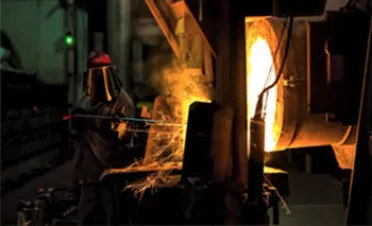Durable Aluminum Diecast Enclosures for Optimal Protection and Performance in Various Applications
The Versatility of Diecast Aluminum Enclosures
In the realm of industrial design and electronics, the material selection and housing of components play a vital role in ensuring durability, functionality, and aesthetic appeal. Diecast aluminum enclosures have become increasingly popular in various applications, thanks to their unique properties and advantages. This article explores the significance, benefits, and applications of diecast aluminum enclosures.
Understanding Diecast Aluminum
Diecasting is a manufacturing process that creates parts by forcing molten metal into a mold cavity under high pressure. Aluminum is an ideal candidate for this process due to its lightweight nature, excellent corrosion resistance, and good thermal and electrical conductivity. Diecast aluminum enclosures are formed in complex shapes that can provide optimal protection for sensitive electronic components.
Key Benefits
1. Durability and Protection One of the primary advantages of diecast aluminum enclosures is their robust construction. They can withstand harsh environmental conditions such as moisture, dust, and extreme temperatures. The integral properties of aluminum also allow the enclosure to resist corrosion, which is especially crucial in outdoor applications where environmental exposure is inevitable.
2. Thermal Management Aluminum has excellent thermal conductivity, making diecast aluminum enclosures ideal for protecting sensitive electronic devices. By effectively dissipating heat generated by internal components, these enclosures help prevent overheating, thereby enhancing the reliability and longevity of the devices housed within.
3. Design Flexibility The diecasting process allows for intricate designs and complex geometries, enabling engineers to create enclosures that not only meet functional requirements but also aesthetic preferences. Companies can achieve unique branding opportunities through custom-shaped enclosures that reflect their identity while providing necessary protection.
4. Cost-Effectiveness Although the initial setup cost for diecasting may be higher compared to other methods, the long-term benefits often outweigh these costs. High-volume production leads to reduced per-unit costs, and the durability of the enclosures translates to decreased replacement frequency and maintenance costs over time.
5. Environmental Sustainability Aluminum is one of the most recyclable materials available, and diecast processes generally have a lower environmental impact than other metal fabrication methods. Companies focused on sustainability can benefit from incorporating diecast aluminum enclosures into their designs, aligning with environmental responsibility goals.
diecast aluminum enclosure

Applications
Diecast aluminum enclosures find application in a wide range of industries, showcasing their versatility
- Electronics They are commonly used to house printed circuit boards (PCBs), connectors, and other electronic components, providing protection against physical damage and environmental factors.
- Telecommunications With the rise of mobile networks and telecommunications equipment, diecast aluminum enclosures serve as protective housings for devices exposed to outdoor environments, ensuring reliable operation under different weather conditions.
- Industrial Equipment In manufacturing environments, these enclosures safeguard sensitive equipment from dust, moisture, and aggressive chemicals, thus extending the lifespan of vital machinery.
- Automotive Diecast aluminum is also utilized in the automotive industry to create lightweight yet strong housings for various electronic components, contributing to improved fuel efficiency without compromising safety and performance.
- Consumer Products From telecommunications gadgets to power adapters, diecast aluminum enclosures enhance the durability and appeal of consumer electronics, providing added confidence to customers regarding product longevity.
Conclusion
In conclusion, diecast aluminum enclosures represent an optimal solution for companies seeking reliable, durable, and cost-effective solutions for electronic housing. Their robustness, thermal management capabilities, design flexibility, cost-effectiveness, and sustainable nature make them a preferred choice across various industries. As technology continues to advance and the demand for high-quality, reliable enclosures increases, diecast aluminum enclosures are likely to play an even more significant role in shaping the future of product design and manufacturing.
-
Aluminium Pressure Die Casting High-Precision & Durable Solutions for Complex PartsNewsJul.08,2025
-
Top Aluminum Sand Castings Manufacturer – Precision Green Sand Castings for Industrial NeedsNewsJul.08,2025
-
Precision Lost Wax Casting Quotes – High Accuracy Custom Parts Lost Wax Precision Casting ServicesNewsJul.07,2025
-
High-Quality Sand Used for Casting - Superior Sand for Sand Casting ProcessesNewsJul.07,2025
-
China Supply High End Metal Stamping Parts Sino - Precision Manufacturing FactoryNewsJul.06,2025
-
High-Quality Automotive Investment Casting Services Precision & Sand Casting SolutionsNewsJul.06,2025















